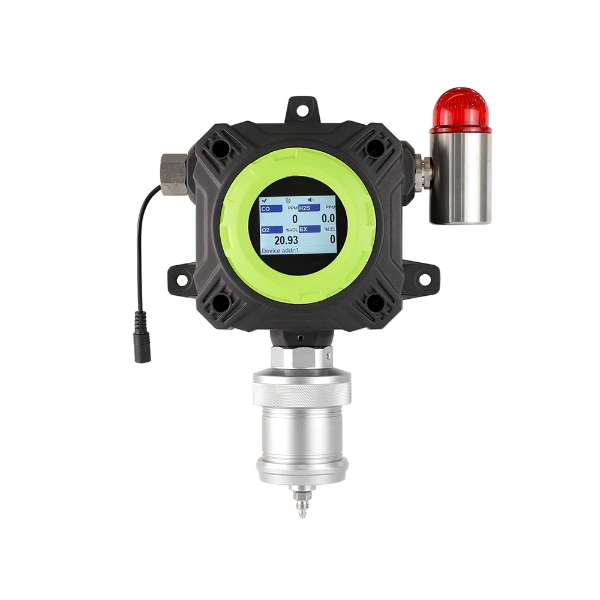Close
-
You have no items in your shopping cart.
- Register
- Log in
- Wishlist
- Shopping cart
Close
Menu
Close
- Home /
- Shop /
- Industrial Gas Detectors /
- Combustible Gas Detectors /
- Industrial Fixed Ethylene (C2H4) Gas Detector
WRITE YOUR OWN REVIEW
RELATED GAS DETECTORS
Fixed Chlorine Dioxide (ClO2) Gas Detector
GD300-ClO2
GasDog fixed ClO2 gas detector for sale, measuring range 0 to 10ppm, 0 to 20ppm, 0 to 50ppm, with remote control and real-time display. This wall mounted gas detector can be installed in pipelines and confined spaces for 24-hour online detection and monitoring of Chlorine Dioxide concentration.
$914.99
Portable Sulfur Dioxide (SO2) Gas Detector
GD200-SO2
GasDog SO2 Sulfur Dioxide gas detector excels at monitoring SO2 gas, with a high-precision sensor, clear LCD display, and compact handheld design. This portable personal gas detector is widely utilized in industrial settings like chemical processes, wood pulp and paper bleaching, food processing, and waste treatment.
$732.75
Industrial Fixed Carbon Monoxide (CO) Gas Detector
GD700-CO
Fixed CO detector for confined space, pipeline and industrial site. This wall mounted gas tester can monitor Carbon Monoxide concentration accurately, sounds the alarm with a remote control, selectable measuring range of 0-10ppm, 0-20ppm, 0-50ppm, 0-100ppm, 0-500ppm, 0-1000ppm or 0-2000ppm.
$846.59
Industrial Fixed Hydrogen Sulfide (H2S) Gas Detector
GD700-H2S
GasDog industrial fixed H2S gas detector is a wall mounted gas monitor to detect Hydrogen Sulfide with sound & light alarm, measuring range from 0 to 5 ppm, 0 to 20 ppm, 0 to 50 ppm, 0 to 100 ppm or 0 to 200 ppm. This online gas detector has an infrared remote control to monitor real time H2S concentration.
$846.59
"Gas Dog: Gas Detection is as Accurate as a Sniffer Dog's Nose."
CUSTOMER SERVICE
Copyright © 2026 GasDog.com. All rights reserved.
























